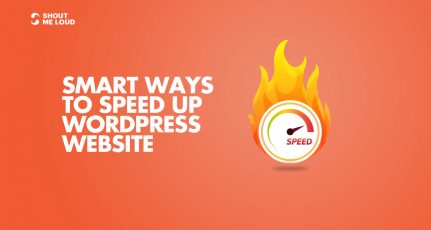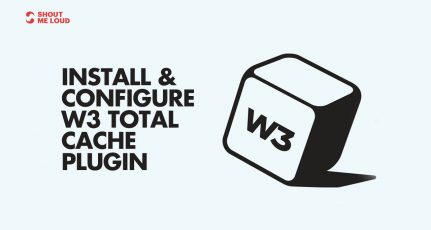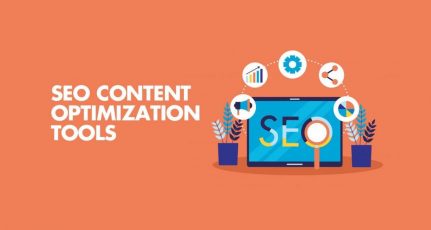
Yes, website loading speed does matter. Faster loading of pages can mean more visits on your site resulting in better SEO.
It’s really important for new and experienced blogger to keep their website’s page load time as low as possible.
According to the stats:
- 47% of consumers expect a web page to load in 2 seconds or less.
- A 1-second delay in page response can result in a 7% reduction in conversions.
- If an e-commerce site is making $100,000 per day, a 1-second page delay could potentially cost $2.5 million.
Even Google has made it official:
- Page load speed is a search engine ranking parameter.
How to find website loading speed:
- Google Developers – Google Developers is an online page speed test site which provides some great insights on what you need to do to improve your site’s performance. You will get a score from 0-100. If you rank above 90, then you’re in good shape. Google can also tell you why your page is loading slowly and can suggest ways of how to improve.
- Pingdom – Pingdom is another great tool to test a site’s speed. Pingdom also offers DNS health checks and a free alert service that notifies you when your website is up or down.
- GTMetrix – GTMetrix provides a great analysis of a website by giving grades on both Page Speed and YSlow. In addition to measuring speed, this tool also gives you info about why your page speed is slow.
How to improve website loading time:
So once we are done with website speed analysis, the next step is to make necessary changes to improve the website’s loading time.
This whole process starts with setting up a caching mechanism and implementing other working techniques to improve a website’s loading time speed.
Note: If you are using WordPress and W3 Total Cache, you should refer to this guide to see your page loading stats right on your WordPress dashboard.
Here are some techniques you can implement right now to speed up your site’s load time:
1. WordPress plugins to optimize performance and speed
W3 Total Cache is one of the best plugins out there to improve a site’s performance through caching.
Installing a cache plugin will improve your page’s load speed and overall performance.
You can also consider enabling CloudFlare and implementing a CDN using W3 Total Cache (see CDN section for details).
Every blogger should use images in his or her post to make the post more compelling. The problem, however, is that images can lead to increases in the page’s load time.
These image compression plugins reduce image file sizes, thereby reducing server load and improving page performance.
As your blog grows older and you write more and more posts, you will automatically create more and more post revisions.
These post revisions may occupy a lot of space and could affect your website’s performance.
This plugin allows you to clean up your database and optimize it without a shred of technical knowledge needed.
2. Content Delivery Network (CDN)
A CDN is a high-performance network of servers that replicates the static assets of your website and serves them to visitors from the closest POP.
Well, that’s a highly technical definition.
Simply put:
A CDN has proxy servers located throughout the world. Wherever the visitor is coming from geographically is where the content will load from. This results in a much quicker serving of a website.
A CDN is one of the most effective ways to supercharge your website’s speed.
3. Put scripts at the bottom
If you are not script savvy, then I would not recommend this tip to you.
But if you know what you’re doing, read on…
The reason behind putting the scripts at the bottom is so that you load all script-related files after your content is loaded; your visitors won’t see a blank page while your Javascript is loading.
Since there are not any specific plugins available to deal with scripts, you yourself have to play around with them. Google Page Speed and GTMetrix can give you insights about the scripts causing delays in page loading.
4. CSS Sprites
CSS Sprites reduces the number of HTTP requests that the browser has to make.
Example:
If you combine 4 images into one big image, the number of image requests will be reduced. This will automatically result in an increase in page load speed.
If you are not a coding expert, I recommend you check out spriteme.org, and try to figure out how CSS Sprites works.
- 9 Free Online CSS Sprites Generatorsr
5. Utilize browser caching
The idea behind browser caching is to set an expiry date, or a maximum age limit, in the HTTP headers for static resources. If caching is enabled, browsers will automatically load previously downloaded static resources (like images, CSS, Javascript, pdf files, etc.) from local disks rather than over the network.
Though W3 Total Cache has settings for browser caching, it won’t do the job up to the mark.
There is a script available on various sites that might help you to set expirations for various types of files. You have to edit .htaccess on an Apache server in your root folder.
Paste this code at the beginning of your .htaccess file:
ExpiresActive On ExpiresByType text/html M3600 ExpiresByType text/css M3600 ExpiresByType application/x-javascript M3600 ExpiresByType image/bmp M3600 ExpiresByType image/gif M3600 ExpiresByType image/x-icon M3600 ExpiresByType image/jpeg M3600
5. Use powerful hosting

Web-hosting is another likely culprit for your slow loading website, and you should consider checking your hosting performance via Host-tracker.
If you are on WordPress, I recommend SiteGround for shared hosting (they have a fantastic server for WordPress). If you are looking for high-end managed WordPress hosting, you should definitely go for Kinsta (where ShoutMeLoud is hosted).
6. Optimize more and more
One of the major reasons for slow loading of a site is using too many 3rd party scripts.
Here’s an exercise:
Check your site’s loading speed with the Facebook fan box widget enabled, and then with it disabled. Is there any noticeable difference in site loading time?
Similarly, remove all ads and see if there’s a difference in your site’s loading time.
If your 3rd party ad network is taking ages to load, it’s time to make a shift to a new ad network, or you can ask your ad manager to upgrade the server.
Also, if you are using widgets, I would suggest you try getting rid of them and only put them back up when your site loads quickly. Try to give a better user experience by offering a faster loading website.
Also, check out our earlier guide on creating a user-friendly website.
Final words
Though page load speed matters, it has limited advantages. There are many websites which score less than 90 in the Google Page Speed test but are still top-ranked in their niche.
Page loading is just one of the various search engine ranking factors, and while a “decent” page load time is acceptable, why not aim to provide readers with a better experience?
If you have a large number of followers, they will likely to wait for your page to load, but new and professional bloggers should aim to meet the needs of their visitors as best as possible.
Your visitors want to enjoy the quality of your content, and by delivering it in the most optimal way possible, you can enjoy an ever-increasing quantity of visitors.
How do you optimize your page load speed? Let me know if you’ve tried out any of these methods and which one(s) worked the best for you. Or are you doing something that’s not on this list? Let me know in the comments!
Like this post? Don’t forget to share it!










Hi,
Loved your post. Website Loading Speed really affects usability. I would love to share that according to surveys done by Akamai and Gomez.com, nearly half of web users expect a site to load in 2 seconds or less, and they tend to abandon a site that isn’t loaded within 3 seconds. So, it is pretty much important. Thanks for your great point of view about it.
Thanks for such a great post, really helpful tips for speed optimizing sites.
Thanks one again 🙂
Well, Page Speed is lately added factor by Google, they should have done it a long back, but still it’s never late, til it’s late. So, great step to force website owners to increase their page load speed, which will automatically improve user experience.
And when it comes, to effect page speed can have on a website, a eCommerce website can lose millions due to their website taking a few milliseconds more to load, Similarly, A blogger can lose out on big traffic and on conversion, if his/her website is not faster. So, it’ very important to start working on this aspect.
All good points to make sites load faster for better user experience and optimization. Two points I like to add, first, compress your html, php, css, js files using GZip compression and second, use minimum http calls to servers. In addition to all the aforementioned points these two will help you too in building a faster loading site.
Thanks for the article Rehan. Working for a CDN provider (CDNetworks), we’ve seen first hand how increasing website speed can make a significant impact on search rankings, usability, and overall conversion. A couple other tips…I’ve heard that using asynchronous codes can help page load performance and even though you’ve included Google Page Speed test, I’d also recommend monitoring Google Webmaster Tools, as it’ll give you some general info and tips on improving load time as well.
Cheers,
I read somewhere that if i load images from a subdomain, then website loads faster, can you explain it?
@Jatin
It does….As When a web page loads, a browser can create X no, of concurrent connection from the same domain. A good idea is to use CDN or host images on a sub-domain, to speed up.. Though I would prefer using CDN, instead of Sub-domain.Here is a guide to help you get started: https://www.shoutmeloud.com/how-to-setup-maxcdn-with-wp-super-cache-plugin.html
Sir my website is showing speed of 50% only how to increase please guide me I need your help
Under utilize browse caching you gave the code to hold the resources for 3600 seconds. I wanted to ask you for images can’t we make the duration for around a week. Because image is a static resource and we don’t change them. If yes then do we have to write the code like
ExpiresByType image/bmp M604800
ExpiresByType image/gif M604800
ExpiresByType image/x-icon M604800
ExpiresByType image/jpeg M604800
or something else? Please do reply
Wow I learned about a few new programs to assist with my blogging. I’m checking for broken links right now and my website speed is 50% faster than most websites. 50/100 is never a great score, but 87% seemed to be decent. I think I need to study this more.
Fast hosting and wp super cache can surely increase the speed of your website. and as far as i know speed does matter when it comes to SEO…!
Recently one of my site was penalized, and my traffic was reduced to 1/4th. After considering everything, i concluded that my site was penalized due to slow loading speed. My site scored 66 in Google Pagespeed test.
Therfore, i would like to thank you for writing such a detailed article. It is of great use to me.
thanks.
A well written article.
It is a tough job to get good page speed without sacrificing some beauty elements. We can’t do much more on the essential social share scripts like Facebook share, like, subscribe etc.
What kind of Script should i use at the bottom can you pls explain me in detail
it’s not the kind of script you should use at the bottom it’s about the scripts you already have. Use Google page speed or Gtmetrix to know which scripts are causing delay in your page load. Try it only if you really know how to do it or leave those scripts as they are since there are other easy ways to increase page load speed.
In the current time no body wants to wait, every thing they think come fast in front of him. And in SEO it is too much important to set webpage loading time otherwise no one will stay for long period or no one will again. So we need to check the health of our website time to time so can take feedback that we are working in a right way. Thanks for sharing website ” how to check website loading time”. Now anyone can check his website speed and find out the actual problem.
Thanks for sharing such a useful and infornative stuff
hello sir,
i think website load speed is 60% metter in SEO. sir plz will you publish a article hot to increase the open speed of my website page.
Sourabh, this article also covers the most effective ways you can check and increase your page load speed so, there will be no need to write another one. Open speed and page load speed they both are same.
i am using w3 total cache plugin and image compressor and i think it is enough to load my website quickly but all the points mentioned above are just awesome..After reading this i started thinking of customizing the website load speed again..Thanks for the article..:D
If the Loading time of particular website is high..then visitors would tend to leave it without even having a look..so this can be another reason to improve your website loading speed…
Though I was already aware of these points, your post just pushed me a little more to optimize my blog loading speed. I think W3 total cache and a image compressor does a cool job. 🙂
Certainly, w3 total cache do its job pretty well but defer parsing of javascript and leverage browser caching is something it won’t do for you and they have a really huge impact on page load speed, if you can totally figure out how to do it you might get a jump of 5 or more points from wherever you were in page speed test.